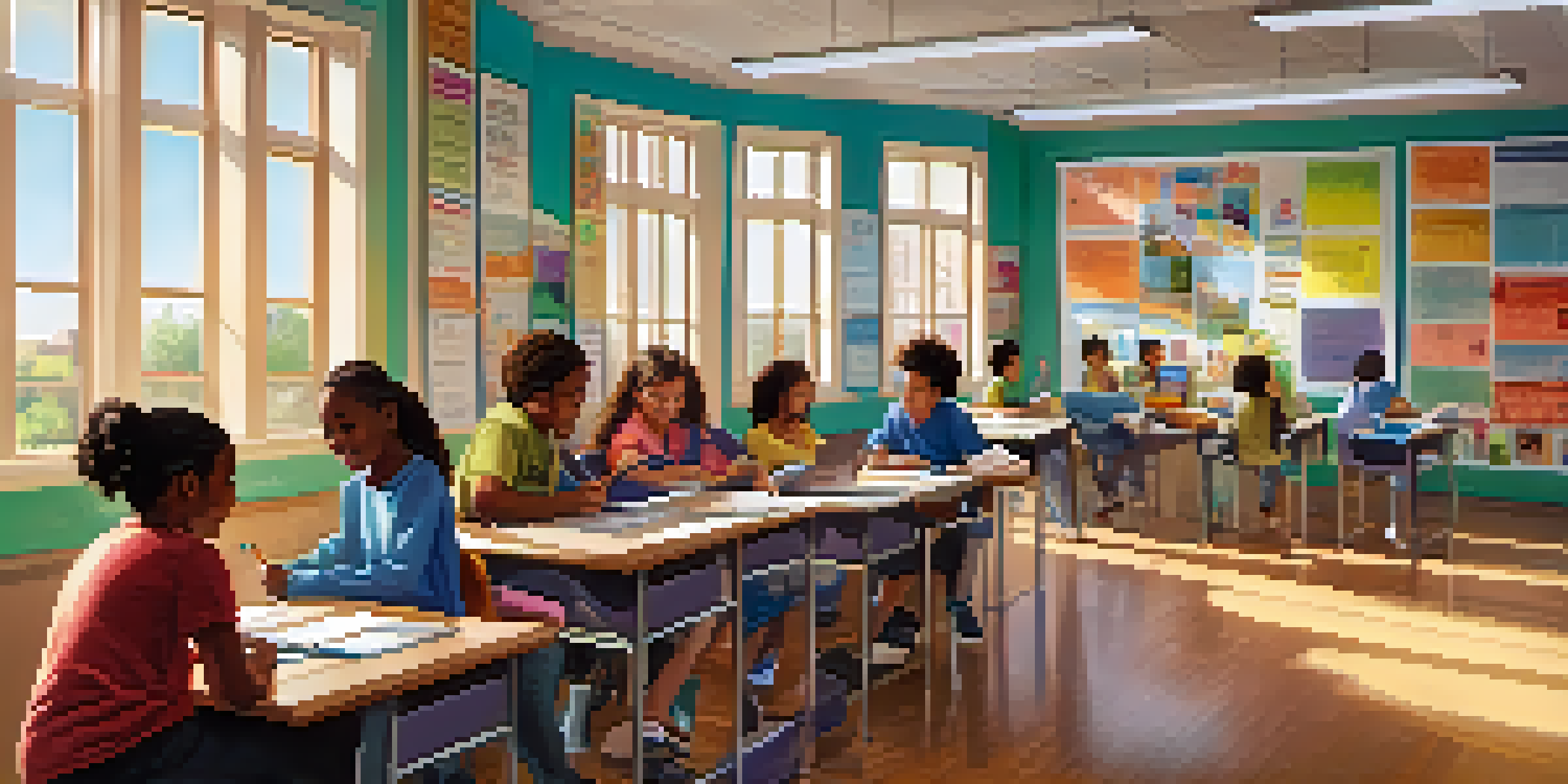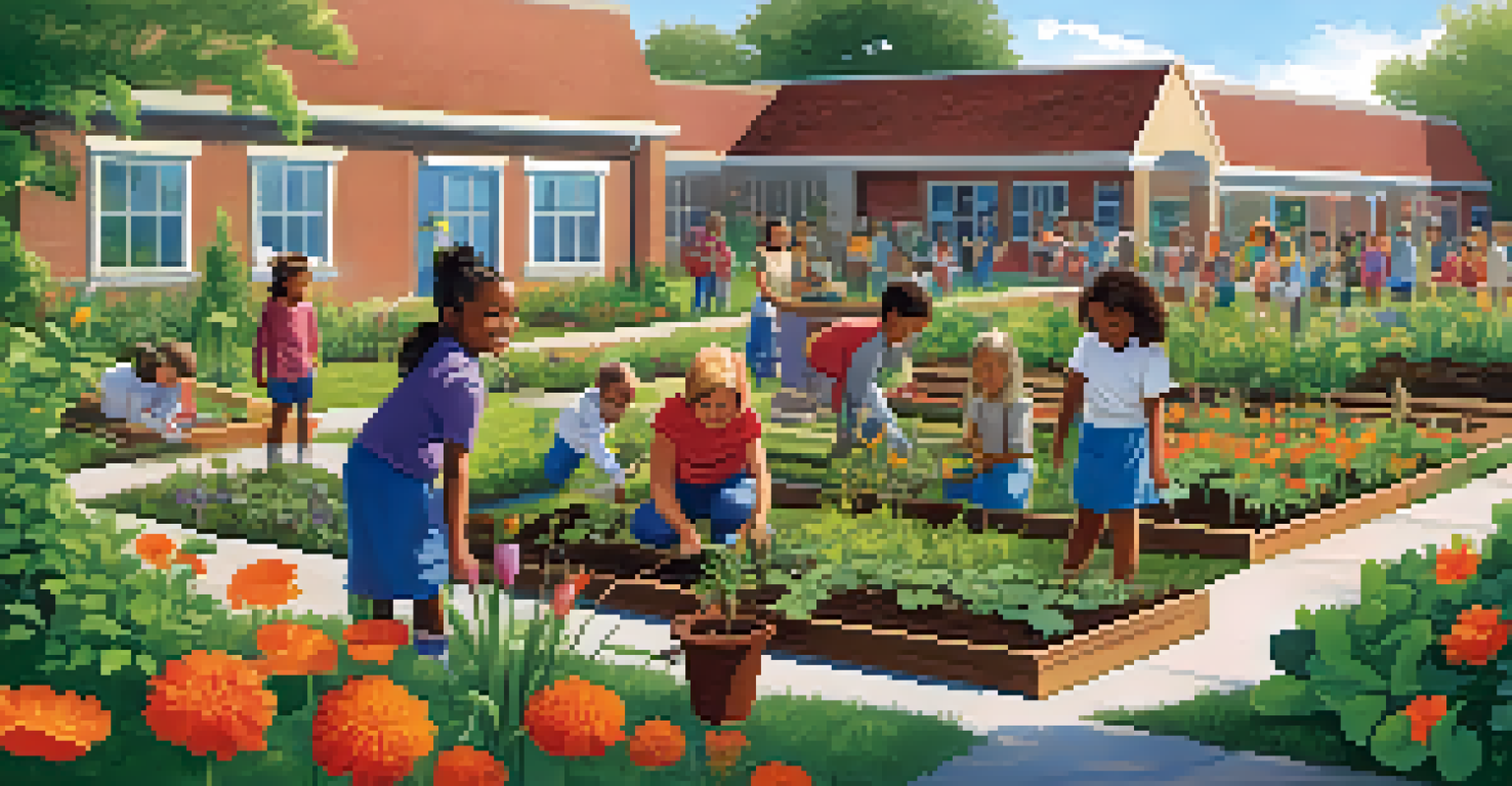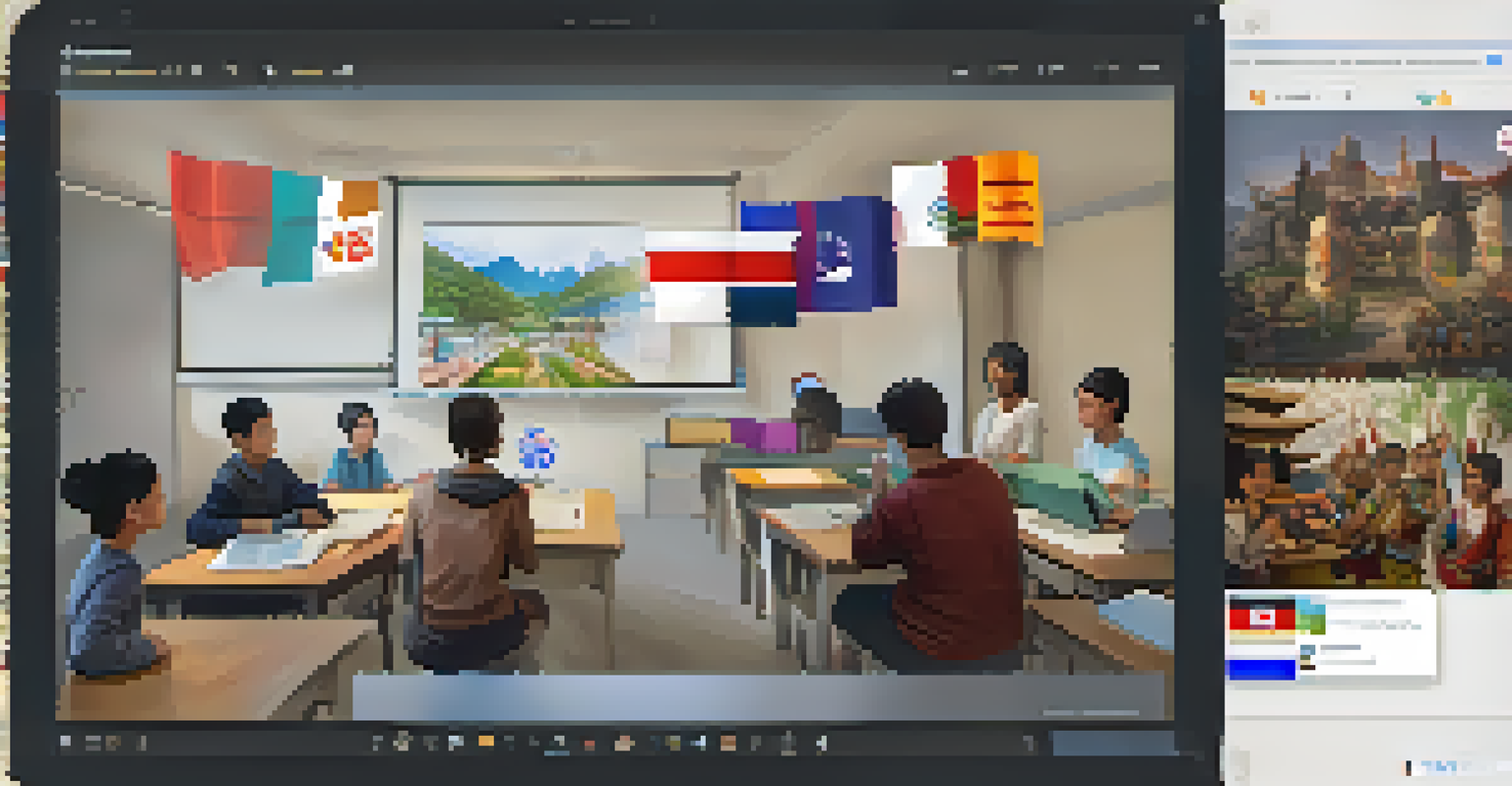Global Education and Community Resilience: Lessons Learned

Understanding Global Education's Role in Resilience
Global education encompasses a wide range of learning experiences that connect individuals across cultures and borders. It promotes understanding, tolerance, and the ability to adapt to various challenges. By fostering critical thinking and problem-solving skills, global education prepares communities to face obstacles more effectively.
Education is the most powerful weapon which you can use to change the world.
Through collaborative learning, communities can share knowledge and strategies that have proven successful in addressing local challenges. This exchange of ideas not only strengthens individual capacities but also builds a collective resilience that can withstand crises. For instance, schools in different countries often adapt best practices from one another to enhance their educational systems.
Ultimately, the lessons learned from global education can guide communities in developing sustainable solutions that address not just immediate issues but also long-term challenges. This interconnected approach helps create a more resilient society, capable of thriving in the face of adversity.
Real-World Examples of Education-Driven Resilience
One notable example of education fostering resilience can be seen in countries recovering from natural disasters. In places like Haiti, educational initiatives have been crucial in rebuilding communities after devastating earthquakes. Schools have not only served as places for learning but also as centers for recovery, providing vital resources and support.

Similarly, in the aftermath of the COVID-19 pandemic, many communities turned to digital education to maintain learning. This shift highlighted the importance of adaptability and innovation, as teachers and students alike embraced new technologies to ensure continuity in education. The lessons learned from these experiences have inspired improved preparedness for future disruptions.
Global Education Fosters Resilience
Global education promotes critical thinking and collaborative learning, equipping communities to tackle challenges more effectively.
These real-world instances demonstrate that education is not just about imparting knowledge; it's a powerful tool for resilience. By equipping individuals with the skills necessary to navigate challenges, communities can emerge stronger and more united, ready to tackle whatever comes next.
The Importance of Local Context in Education Resilience
While global education provides valuable insights, it's essential to tailor these lessons to local contexts. Each community has unique challenges and resources that shape their educational landscape. Understanding these nuances allows for a more effective application of global strategies, ensuring they resonate with local needs.
The only thing worse than being blind is having sight but no vision.
For instance, a community facing economic challenges might benefit from vocational training programs that align with local job markets. By integrating global educational practices with local realities, communities can develop programs that not only educate but also empower individuals to contribute to their economies and society.
This emphasis on local context fosters ownership and commitment among community members. When individuals feel that their education is relevant and beneficial to their lives, they are more likely to engage actively in both their learning and their community's resilience efforts.
The Role of Technology in Enhancing Educational Resilience
Technology plays a pivotal role in expanding access to education, especially in times of crisis. During the COVID-19 pandemic, many educational institutions turned to online learning platforms, demonstrating how technology can bridge gaps when traditional systems falter. This shift not only maintained educational continuity but also offered new opportunities for engagement.
Moreover, technology facilitates collaboration across borders, allowing students and educators to connect and share resources globally. Virtual exchanges and online courses can enrich local curricula by providing diverse perspectives and knowledge. By harnessing technology, communities can enhance their resilience through continuous learning and adaptation.
Local Context Enhances Learning Impact
Tailoring educational strategies to local contexts ensures that initiatives resonate with community needs, fostering ownership and commitment.
However, it's crucial to address the digital divide that exists in many regions. Ensuring equitable access to technology is essential for global education to effectively contribute to community resilience. By investing in infrastructure and training, communities can empower all individuals to benefit from educational advancements.
Building Partnerships for Educational Resilience
Collaboration among various stakeholders is vital for enhancing educational resilience. Schools, governments, NGOs, and local businesses all play a role in creating an ecosystem that supports effective learning. By working together, these entities can pool resources, share expertise, and develop comprehensive strategies that address community needs.
For example, partnerships between educational institutions and local businesses can lead to internships and real-world learning experiences for students. This not only enriches the educational experience but also strengthens the local economy by creating a workforce that is well-prepared for available jobs.
Additionally, community engagement in educational initiatives fosters a sense of ownership and responsibility. When individuals feel invested in their local education systems, they become active participants in building resilience, ensuring that efforts are sustained and impactful.
Lessons from Global Education for Future Resilience
As we reflect on the lessons learned from global education, several key takeaways emerge. Adaptability is crucial; communities must be willing to adjust their educational practices to meet evolving challenges. This flexibility allows for more effective responses to crises, whether they are natural disasters, economic downturns, or public health emergencies.
Another important lesson is the value of inclusivity in education. Ensuring that all voices are heard and represented strengthens community resilience. Diverse perspectives lead to richer discussions and more innovative solutions, ultimately enhancing the educational experience for everyone involved.
Technology Bridges Educational Gaps
Leveraging technology in education expands access and fosters collaboration, essential for maintaining resilience during crises.
Lastly, fostering a culture of continuous learning is essential. By embracing a mindset that values growth and development, communities can better prepare for the unknown. The lessons drawn from global education should inspire ongoing reflection and adaptation, ensuring that resilience remains a priority.
Conclusion: Education as a Catalyst for Resilience
In conclusion, global education serves as a powerful catalyst for community resilience. By integrating lessons learned from diverse contexts and fostering collaboration, communities can build a stronger foundation for facing challenges. The interplay between education and resilience is not just beneficial but essential for thriving in an interconnected world.
As we move forward, it's important to prioritize educational initiatives that empower individuals and communities alike. By investing in education, we are investing in a brighter future—one where resilience is not merely a response to adversity but a way of life.

Ultimately, the journey toward enhanced community resilience through education is ongoing. By learning from the past and adapting to the present, we can pave the way for a more resilient, equitable, and informed global society.